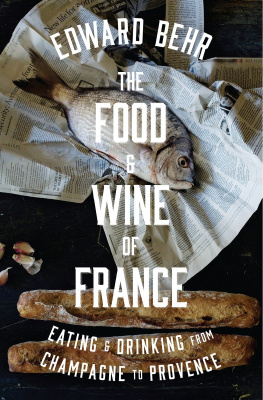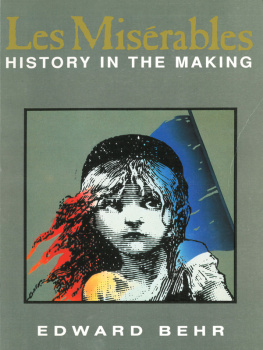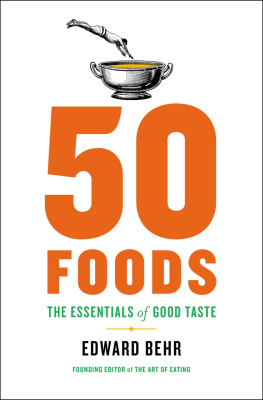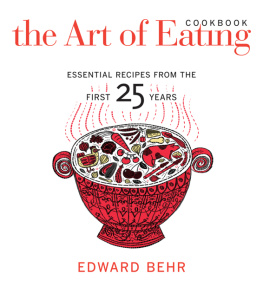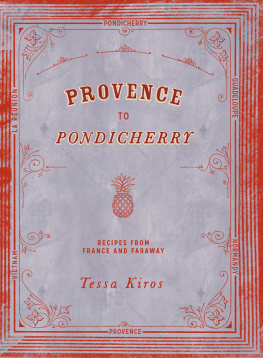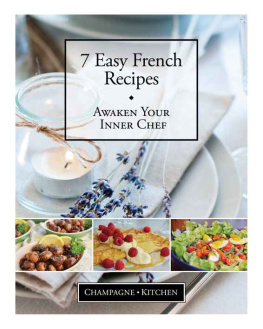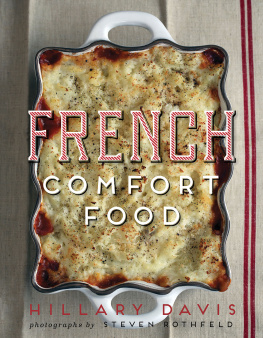Edward Behr - The Food and Wine of France: Eating and Drinking from Champagne to Provence
Here you can read online Edward Behr - The Food and Wine of France: Eating and Drinking from Champagne to Provence full text of the book (entire story) in english for free. Download pdf and epub, get meaning, cover and reviews about this ebook. year: 2016, publisher: Penguin Publishing Group, genre: Detective and thriller. Description of the work, (preface) as well as reviews are available. Best literature library LitArk.com created for fans of good reading and offers a wide selection of genres:
Romance novel
Science fiction
Adventure
Detective
Science
History
Home and family
Prose
Art
Politics
Computer
Non-fiction
Religion
Business
Children
Humor
Choose a favorite category and find really read worthwhile books. Enjoy immersion in the world of imagination, feel the emotions of the characters or learn something new for yourself, make an fascinating discovery.
- Book:The Food and Wine of France: Eating and Drinking from Champagne to Provence
- Author:
- Publisher:Penguin Publishing Group
- Genre:
- Year:2016
- Rating:4 / 5
- Favourites:Add to favourites
- Your mark:
The Food and Wine of France: Eating and Drinking from Champagne to Provence: summary, description and annotation
We offer to read an annotation, description, summary or preface (depends on what the author of the book "The Food and Wine of France: Eating and Drinking from Champagne to Provence" wrote himself). If you haven't found the necessary information about the book — write in the comments, we will try to find it.
A beautiful and deeply researched investigation into French cuisine, from the founding editor of The Art of Eating and author of 50 Foods.
In THE FOOD AND WINE OF FRANCE, the influential food writer Edward Behr investigates French cuisine and what it means, in encounters from Champagne to Provence. He tells the stories of French artisans and chefs who continue to work at the highest level. Many people in and out of France have noted for a long time the slow retreat of French cuisine, concerned that it is losing its important place in the countrys culture and in the world culture of food. And yet, as Behr writes, good French food remains very, very delicious. No cuisine is better. The sensuousness is overt. French cooking is generous, both obvious and subtle, simple and complex, rustic and utterly refined. A lot of recent inventive food by comparison is wildly abstract and austere. In the tradition of great food writers, Edward Behr seeks out the best of French food and wine. He shows not only that it is as relevant as ever, but he also challenges us to see that it might become the worlds next cutting edge cuisine.
France remains the greatest country for bread, cheese, and wine, and its culinary techniques are the foundation of the training of nearly every serious Western cook and some beyond. Behr talks with chefs and goes to see top artisanal producers in order to understand what the best means for them, the nature of traditional methods, how to enjoy the foods, and what the optimal pairings are. As he searches for the very best in French food and wine, he introduces a host of important, memorable people.
THE FOOD AND WINE OF FRANCE is a remarkable journey of discovery. It is also an investigation into why classical French food is so extraordinarily deliciousand why it will endure.
Edward Behr: author's other books
Who wrote The Food and Wine of France: Eating and Drinking from Champagne to Provence? Find out the surname, the name of the author of the book and a list of all author's works by series.

